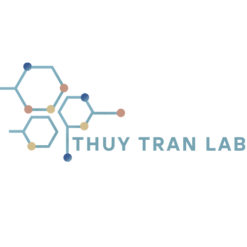Located in Stockholm, Sweden, the Research Lab at Karolinska Institutet is at the forefront of translational theranostics. With a focus on developing the next generation of targeted radiopharmaceutical therapy and antibody- and peptide drug conjugates, the lab is dedicated to advancing the field of precision medicine.
Translational theranostics is an emerging field that combines diagnostics and therapeutics to provide personalized treatment options for patients. By utilizing molecular imaging techniques and targeted therapies, researchers in this field aim to improve patient outcomes and minimize side effects.
The lab at Karolinska Institutet is equipped with state-of-the-art facilities and cutting-edge technology to facilitate their research efforts. They collaborate with leading scientists and clinicians from around the world to ensure that their work is at the forefront of scientific innovation.
One of the key areas of focus for the lab is the development of targeted radiopharmaceutical therapy. This involves using radioactive substances to deliver therapeutic doses of radiation directly to cancer cells. By targeting specific molecules on the surface of cancer cells, researchers can selectively destroy them while sparing healthy tissue.
Another area of research is the development of antibody- and peptide drug conjugates. These are molecules that combine an antibody or peptide with a drug, allowing for targeted delivery of the drug to specific cells or tissues. This approach has the potential to revolutionize the treatment of various diseases, including cancer.
The lab’s research efforts have already yielded promising results. They have successfully developed novel radiopharmaceuticals that have shown efficacy in preclinical studies. These findings have paved the way for further research and clinical trials, with the ultimate goal of translating these discoveries into improved patient care.
Collaboration is a key aspect of the lab’s work. They actively collaborate with pharmaceutical companies, academic institutions, and healthcare providers to ensure that their research is aligned with clinical needs. By working together, they aim to accelerate the translation of their findings into clinical practice.
In addition to their research efforts, the lab also plays a crucial role in training the next generation of scientists and clinicians. They offer various educational programs and opportunities for students and early-career researchers to gain hands-on experience in translational theranostics.
Overall, the Research Lab at Karolinska Institutet is making significant strides in advancing translational theranostics. Their focus on developing targeted radiopharmaceutical therapy and antibody- and peptide drug conjugates has the potential to revolutionize the field of precision medicine. With their state-of-the-art facilities, collaborative approach, and dedication to training the next generation of researchers, they are well-positioned to continue making impactful contributions to the field.
